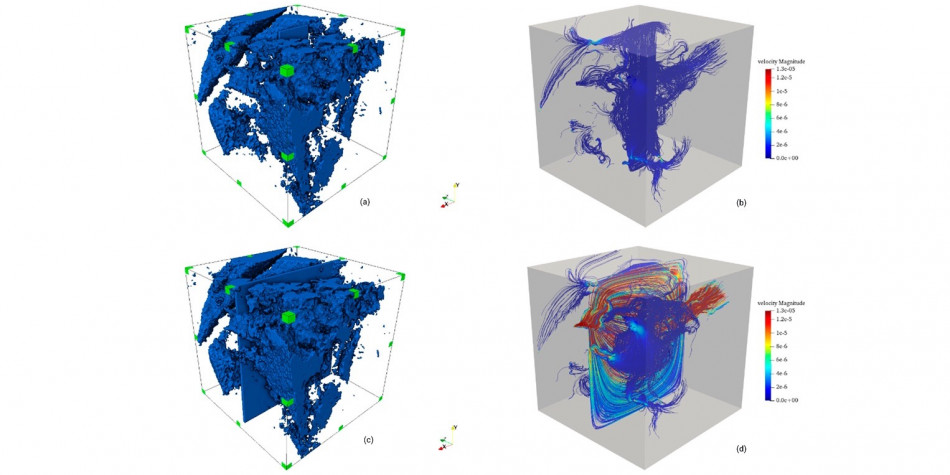
Scientists of Perm Polytechnic University (PNRPU, part of the REC "Rational Subsurface Use" have created a virtual laboratory for rock analysis, which can significantly reduce the time and cost of research aimed at increasing the oil recovery of "mature" fields.
The virtual laboratory of Perm Polytechnic University is based on the data of X-ray computed tomography of real rocks and a series of digital cores generated on their basis.
Traditional physical laboratory tests of a single rock sample take several months and require large expenses. At the same time, the accuracy of the data is of great importance, since on their basis a decision is made on the choice of the method of extraction and transportation of oil from a particular field. An incorrectly chosen method can reduce the potential of oil assets.
"The creation and analysis of digital doubles avoids the disadvantages of traditional research performed using cores – the fragility of the material, long terms and uncertain results," emphasizes Dmitry Martyushev, Candidate of Technical Sciences, Associate Professor of the Department of Oil and Gas Technologies.
Another advantage of digital doubles is the ability to reuse digital samples to simulate all kinds of scenarios and conditions. So, if the real core of a mining parody can be used only once, then working with its digital counterpart can be multiple.
As a result, oil engineers will be able to make more informed decisions thanks to a larger amount of data.
The results of the work of the polytechnics are published in the journal "Advances in Geo-Energy Research". Scientists from the Chinese Petroleum University (East China) also took part in the study. The development was carried out within the framework of the Academic Strategic Leadership Program "Priority-2030". "Hydrocarbons" is one of the seven key areas of the Perm REC "Rational Subsoil Use".


